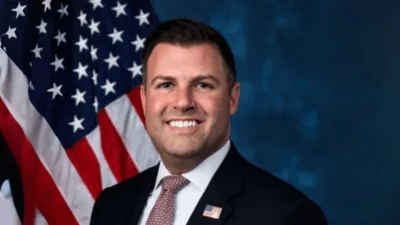Washington, D.C. - Energy and Commerce Health Subcommittee Republican Leader Brett Guthrie (R-KY) delivered remarks at today’s Health Subcommittee legislative hearing on public health bills to support patients and research integrity.
His remarks as prepared for delivery:
COMBATTING CHINA’S INFLUENCE
“Today’s hearing includes an examination of the ongoing work at the National Institutes of Health (NIH) and ensuring the U.S. remains the leader in biomedical research. A few of the proposals included in today’s legislative hearing are designed to promote greater oversight over how U.S. taxpayer dollars are spent on federally funded biomedical research.
“It is important to protect U.S. biomedical intellectual property from being stolen by foreign governments. Some adversarial foreign governments, such as the Chinese Community Party, are using their own research programs to recruit researchers in the United States, who also receive U.S. taxpayer funded research dollars and take U.S.-funded IP back to China.
“This scheme poses a very real threat to U.S. biomedical intellectual property."
OVERSIGHT AND ACCOUNTABILITY
“Perhaps the most widely reported example of this alarming trend is Dr. Charles Lieber, a world-renown researcher and former Chair of Harvard’s Chemistry and Chemical Biology Department.
“Dr. Lieber was charged with lying to federal investigators about his connection to the Chinese Communist Party’s Thousand Talents Program and about income he received from the Chinese Community Party aligned-Wuhan University of Technology.
“This continues to be a problem. A watchdog agency published a report earlier this month showing there are still lingering research integrity issues that could significantly undermine future U.S. biomedical research if they are not appropriately addressed.
“After concerns were raised regarding NIH grantees failing to make disclosures about ties to foreign countries, the Office of Inspector General at the Department of Health and Human Services surveyed over 770 grantees that collectively were awarded over $20 billion in grant funding from NIH in fiscal year 2020. The findings were alarming.
“Of the 617 entities that responded, the IG found that over two-thirds of those surveyed failed to meet certain disclosure requirements set forth by the NIH as a condition for receiving federal funding.
“These disclosure requirements are designed to protect from the type of activity that Dr. Charles Lieber was engaged in. These include requiring entities to report all types of foreign financial interests and support, training researchers about their responsibilities and how to make these disclosures, and performing reviews to make determinations about whether existing foreign financial interests could compromise the federally funded research.
“The IG report came at the heels of a years-long investigation undertaken by top NIH officials to ensure U.S.-taxpayer research dollars were being spent appropriately. In fact, the top oversight official at NIH charged with overseeing the Department’s extramural grants program, Michael Lauer, even confirmed this concerning trend dating back to 2016.
“In one of the more egregious examples, as Mr. Lauer himself characterized it, an NIH-funded researcher failed to disclose a $5 million startup package from a Chinese University to both the NIH and to the American University employing this researcher."
RESEARCH INTEGRITY
“To the credit of the NIH, in addition to the existing HHS requirements, the agency issued guidance in 2019 expressly stating grantees must report participation in a foreign talents program, like China’s Thousand Talents program. The Trump administration’s Department of Justice even launched the ‘China Initiative’ to combat maligned-foreign influence in U.S. research.
“Despite all of this, more oversight is clearly needed to protect the integrity of U.S. research dollars. I am glad we are here today to finally discuss these issues. Taken together, Mr. Curtis’, Mr. Hudson’s, and Mr. Bilirakis’ bills before us today would help to address the issues highlighted in the OIG’s report.
“The bills would specifically require NIH to transparently report to Congress the number of grantees investigated for noncompliance with grant disclosure requirements, require HHS to develop tools to effectively protect U.S. biomedical research, and to explicitly require NIH grantees to disclose participation in foreign talent programs as a condition of funding, which is currently required by HHS but not by federal law.
“Above all, the NIH can and should remain a primary vessel for fundamental scientific research. We can ultimately unleash the agency’s full potential without stifling future research if we effectively increase transparency on how these research dollars are spent. I look forward to advancing these critical pieces of legislation toward that end."









